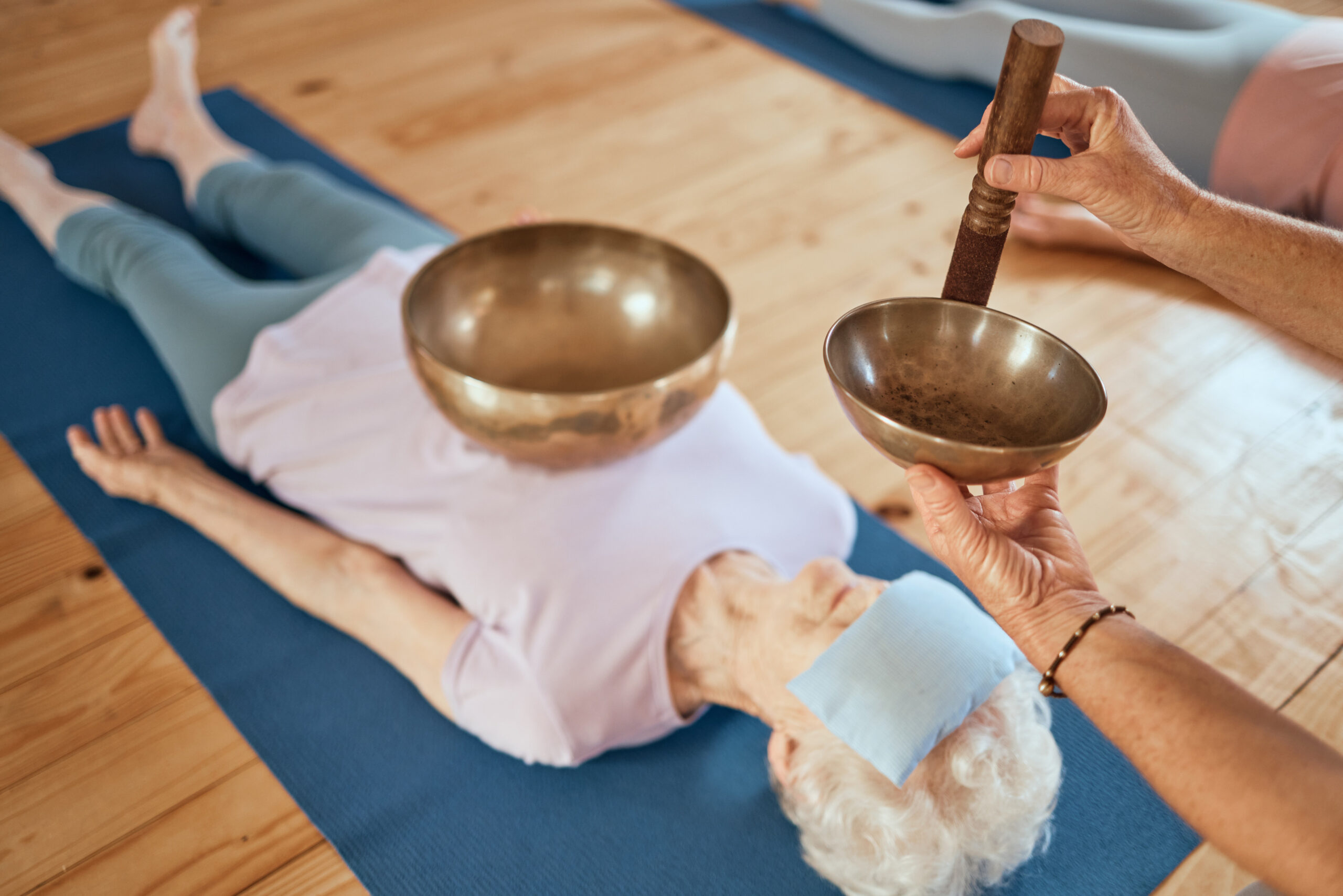The Impact of Bath Duration on Meditation Practice and Stress Management

Understanding Bath Duration and Well-Being
The impact of bath duration on overall well-being is emerging as a compelling area of exploration, especially amid the frenetic pace of life that many in Nigeria experience. For those navigating the demands of urban living, the bathroom can become a personal sanctuary, where the integration of longer bathing sessions can yield substantial health benefits.
Benefits of Longer Bath Durations
There are several ways in which extending the time spent in the bath can enhance both mental and physical health:
- Enhanced relaxation: Immersing oneself in warm water has a unique ability to relax tense muscles. This physiological response can help alleviate physical stress, making it easier for individuals to enter a deeper meditative state.
- Improved focus: The serene atmosphere of a bath, free from typical daily distractions, promotes a sense of mindfulness. In this peaceful setting, practitioners can concentrate better on their meditation techniques, leading to a richer experience.
- Stress relief: For countless Nigerian city dwellers, the bath can serve as a temporary escape from the hustle and bustle. This space allows individuals to detach from their responsibilities and unwind, significantly contributing to their mental well-being.
The Role of Multi-Sensory Experiences
According to recent research, the effectiveness of stress management techniques can significantly increase with the right bathing strategies. For example, incorporating essential oils such as lavender or eucalyptus can create a soothing aromatic atmosphere conducive to relaxation. Playing gentle, instrumental music can further enhance this multi-sensory experience, inviting deeper introspection and facilitating meditation.
Cultural Perspectives in the Nigerian Context
In Nigeria, the societal norms and cultural significance surrounding bathing can greatly influence individual practices and experiences. Traditionally, bathing can be seen as a communal event, often associated with rituals of cleansing and renewal. In some cultures, communal baths are not just practical but also social gatherings that foster community bonds. This cultural backdrop could enhance the benefits of longer bath times, as individuals may find additional solace in shared experiences.
As you rethink your self-care routines, consider how even small changes in bath duration may pave the way for improved well-being. Whether it’s by allowing a few extra minutes for a comforting soak or transforming your bathroom into a tranquil spa-like environment, these adjustments could lead to new realms of relaxation and peace. Embracing this practice might just be the key to mastering stress management in our bustling modern lives.

LEARN MORE: This related article may interest you
Exploring the Connection Between Bath Duration and Meditation
The duration of time spent in the bath can significantly influence one’s ability to engage in effective meditation, ultimately impacting stress management. With many individuals in Nigeria facing relentless daily pressures, understanding this connection becomes increasingly relevant. The act of bathing transcends mere hygiene; it can become a therapeutic ritual that fosters mental clarity and emotional resilience.
Meditation Enhanced by Longer Baths
One of the key advantages of longer bath durations lies in their potential to deepen meditation practices. As individuals immerse themselves in warm water, they create an optimal environment that promotes relaxation and introspection. Researchers have found that spa-like experiences, including prolonged bathing, can trigger a response in the brain that promotes heightened mindfulness. The calming properties of water can lower cortisol levels, which are often elevated during stressful periods. This physiological change enhances one’s ability to meditate effectively, leading to improved emotional well-being.
Creating a Space for Mindfulness
Transforming a routine bath into a holistic experience is crucial for those looking to enhance their meditation practice. The following elements can be effective in this effort:
- Temperature: The temperature of the water should be warm but comfortable, allowing the body to relax adequately. This can help ease tension and create a tranquil experience.
- Lighting: Soft, dim lighting or candles can help set the mood, promoting a calming atmosphere that is conducive to meditation.
- Aromatherapy: The inclusion of essential oils or bath salts can stimulate the senses, fostering a serene environment that further aids in relaxation and mindfulness.
- Mindfulness Exercises: Engaging in focused breathing or visualization techniques while soaking can enhance one’s meditative state, maximizing the benefits of the bath.
Implementing these strategies can allow bath durations to evolve into more than just a physical cleanse; they can serve as integral components of a personalized self-care routine aimed at alleviating stress. Many find that dedicating extra time to these daily rituals not only offers a refuge from chaotic urban life but also crafts an opportunity for self-reflection.
The Science of Bathing and Mental Clarity
Numerous studies suggest that engaging in a routine that combines bathing with meditation can lead to transformative impacts on mental health. For instance, a research article published in the International Journal of Environmental Research and Public Health highlights that warm baths can foster relaxation, reduce anxiety symptoms, and enhance one’s ability to focus. Furthermore, the additional time spent in a bath not only improves physical relaxation but also prepares the mind for deeper meditative practices.
In conclusion, recognizing the importance of bath duration in one’s meditation practice and overall stress management is vital for individuals seeking to cultivate a healthier state of mind. By allowing for extended periods of submerged tranquility, bathers can discover their unique pathways to lasting calm and serenity.
| Aspect | Details |
|---|---|
| Duration of Bath | Longer bath durations can enhance relaxation, leading to improved meditation quality and deeper mental focus. |
| Stress Relief | Extended baths encourage a state of mindfulness, reducing cortisol levels and promoting overall emotional well-being. |
The relationship between bath duration and stress management is increasingly significant in today’s fast-paced lifestyle. Spending additional time in a warm bath not only enhances relaxation but serves as an ideal environment for practicing meditation. This process can lead to more profound insights and self-awareness.Moreover, engaging in calming activities while bathing, such as mindfulness exercises or guided meditation, allows individuals to experience heightened senses and tranquility. Studies have shown that regularity in this practice can condition the mind to achieve a state of calmness more rapidly, establishing a healthier routine. Conversely, opting for shorter baths may hinder one’s ability to fully engage in meditation, often leaving practitioners feeling more rushed and less centered. Emphasizing the importance of time spent in the bath lays the foundation for more profound impacts on mental clarity and emotional health. Ultimately, understanding how bath duration impacts meditation practice can provide valuable tools for those looking to enhance their stress management strategies.
LEARN MORE: This related article may interest you
The Role of Bathing in Developing Longevity Practices
Furthermore, the act of bathing for extended durations can serve as a vital component in nurturing longevity practices, particularly in the context of stress management. In Nigeria, where many communities are beginning to embrace alternative health practices, bathing isn’t just about washing but also involves a spiritual aspect that can reinforce one’s mental and emotional resilience.
Bathing Rituals as Cultural Awakening
Across various cultures in Nigeria, the bath has long been viewed as a purifying ritual. For instance, during traditional festivals, prolonged bathing sessions are often integrated with meditation and communal reflection. These practices help individuals collectively cope with stress and develop a sense of belonging and community. Incorporating mindfulness techniques into these cultural rituals can further enhance emotional healing and cognitive clarity.
Benefits of Temperature Variations
Engaging in temperature variations during bath sessions can also optimize meditation practices. Warm baths tend to relax muscles and calm the mind, while alternating with cooler water can invigorate the senses and sharpen mental focus. While this practice might seem unconventional, regional knowledge suggests that these contrasting temperatures can help stimulate the body’s parasympathetic nervous system, ultimately aiding in stress management.
The Psychology of Soaking
The psychology of soaking extends beyond mere physical sensations. The prolonged immersion evokes a meditative state that enables the brain to enter a calm, focused mode. Studies, such as the one published in the Journal of Behavioral Medicine, indicate that individuals who spend longer periods in relaxing environments experience heightened levels of serotonin, a hormone known for its role in mood regulation. The integration of this knowledge emphasizes the potential of baths to serve as a natural sanctuary for meditation practice.
Guided Bathing Techniques for Stress Relief
Incorporating guided techniques during bath sessions can streamline the benefits of extended bathing. Here are several approaches to consider:
- Intentional Breathing: Before entering the bath, taking a few moments to practice deep breathing can set the tone for relaxation. This mindful practice can transition your focus from daily stressors to a more centered state of being.
- Visualizing Calm: While soaking, visualize peaceful scenes, such as serene landscapes or calming waters. This mental imagery can deepen the state of relaxation and amplify the effectiveness of meditation.
- Affirmations: Repeating positive affirmations or mantras can further enhance the meditative experience, reinforcing one’s sense of calm and improved emotional state.
- Journaling Reflections: After a session, jotting down thoughts or feelings that emerged during the bath can help individuals identify patterns connected to stress and relaxation.
By acknowledging the profound link between bath duration and meditation, individuals can better harness their bathing sessions as a tool for effective stress management. As awareness of mental health continues to grow, particularly within Nigerian communities, the significance of reinstating the bath as a holistic practice becomes ever more vital for achieving sustained inner peace.
CHECK OUT: Click here to explore more
Conclusion
In summary, the connection between bath duration and its influence on meditation practices and stress management is both profound and multifaceted. As we have explored, the act of prolonged bathing serves not just as a physical cleansing, but as a powerful ritual steeped in cultural significance, especially among Nigerian communities. By recognizing the transformative potential of bathing rituals, individuals can use them as opportunities for personal reflection and communal bonding, enhancing emotional healing in the process.
The practice of engaging in varying water temperatures can optimize not just relaxation but also mental acuity, unlocking a state of mindfulness that is beneficial for meditation. Studies indicate that the therapeutic effects of soaking can lead to increased serotonin levels, enhancing mood and fostering a sense of well-being. Moreover, implementing guided techniques, such as intentional breathing and visualization, further enriches the bathing experience, elevating it beyond mere relaxation into a structured practice of stress management.
As awareness surrounding mental health continues to gain traction in society, it becomes increasingly essential to highlight the role of holistic practices like bathing in nurturing mental resilience. By embracing extended bathing sessions as an essential part of one’s daily routine, individuals can cultivate a sanctuary for introspection and rejuvenation. Ultimately, the impact of bath duration on meditation is a powerful reminder that sometimes the simplest activities can lead to profound personal changes. With renewed appreciation, we can rediscover the art of bathing as not just a necessity, but a nurturing practice for the mind and spirit.


